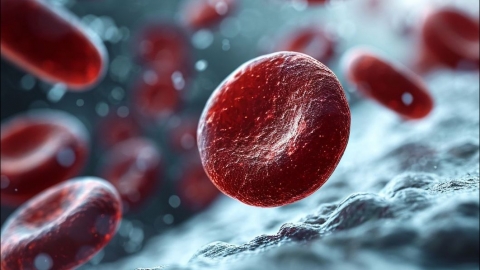What are the causes of thrombocytopenia?
Thrombocytopenia may be caused by physiological changes during pregnancy, strenuous exercise, long-term heavy alcohol consumption, immune thrombocytopenia, aplastic anemia, and other conditions, and management can vary accordingly. If symptoms occur, it is recommended to seek timely medical consultation to clarify the condition and follow medical advice for treatment to avoid delaying the illness.

1. Physiological changes during pregnancy: During pregnancy, a woman's blood volume increases, leading to diluted blood and a relative decrease in platelets. Pregnant women should maintain a balanced diet, consume more protein, iron, and vitamin-rich foods such as lean meats, eggs, and fresh fruits and vegetables, attend regular prenatal checkups, and closely monitor changes in platelet count.
2. Strenuous exercise: Intense physical activity within a short period can cause a stress response in the body, potentially leading to temporary abnormal distribution of platelets in organs such as the spleen, resulting in decreased platelet count in peripheral blood. Exercise should be conducted gradually, and adequate rest should be ensured after exercise. Typically, after resting for 1-2 days, platelet levels can return to normal.
3. Long-term heavy alcohol consumption: Alcohol can suppress bone marrow's hematopoietic function, affecting platelet production and leading to thrombocytopenia. Reducing alcohol intake or abstaining from alcohol altogether, while supplementing with foods rich in B vitamins, such as whole wheat bread and brown rice, can help restore hematopoietic function.
4. Immune thrombocytopenia: The immune system mistakenly attacks platelets, causing a reduction in their numbers. Petechiae and ecchymosis of the mucous membranes may appear, and symptoms such as nosebleeds and gum bleeding are also common. It is recommended to use medications such as prednisone tablets, dexamethasone tablets, and intravenous human immunoglobulin (pH4) under medical guidance to alleviate symptoms.
5. Aplastic anemia: Bone marrow hematopoietic function fails due to multiple factors, leading to reduced production of platelets and other blood cells. Patients may appear pale, dizzy, and weak, accompanied by skin petechiae, nosebleeds, and other manifestations. Patients can follow medical advice to use medications such as cyclosporine soft capsules, testosterone undecanoate pills, and Fufang Zaofan pills to stimulate bone marrow hematopoiesis and relieve symptoms.
In daily life, it is recommended to eat a light diet and ensure balanced nutrient intake, which is beneficial for blood health.
References:
[1] Wang L N, Yang Y Q, Zhu X J. Research progress on immune-related neonatal thrombocytopenia[J]. Chinese Journal of Practical Internal Medicine, 2024, 44(10): 866-871. DOI: 10.19538/j.nk2024100114.
[2] Xie R F, Wang Z C, Sun J, et al. Effect of reducing reactive oxygen species generation in platelets on phagocytosis of refrigerated platelets[J]. Acta Universitatis Medicinalis Anhui, 2025, 60(01): 123-129. DOI: 10.19405/j.cnki.issn1000-1492.2025.01.017.








